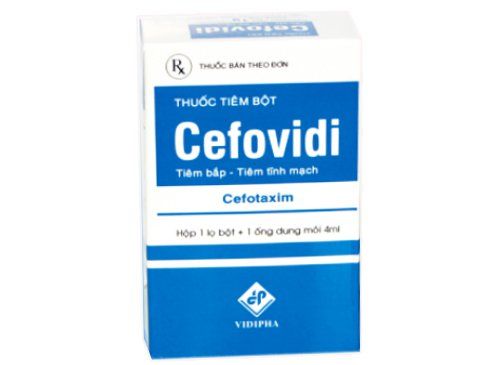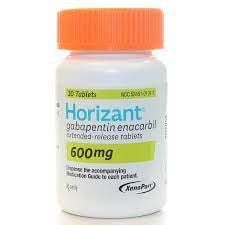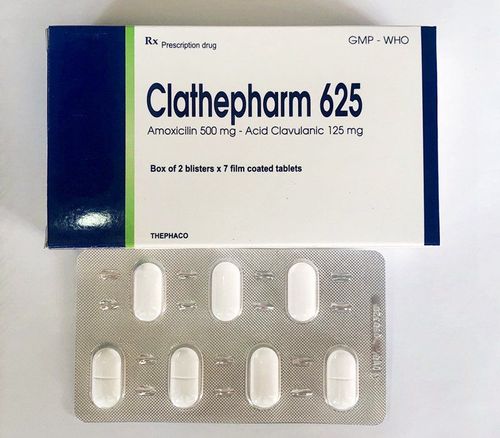This is an automatically translated article.
Azein is used for infections caused by Varicella Zoster, Herpes Simplex and Shingles. The following article will provide details about the composition, effects of Azein and the most important information.1. What is Azein?
Azein belongs to the group of antifungal, antiviral, anti-infective, anti-parasitic drugs, the drug contains the main ingredient is Acyclovir, manufactured by Myung-In Pharma Co., Ltd - Korea. Dosage form: Powder for injection. Content: 250mg.
2. What does Azein do?
Acyclovir is known as an antiviral drug, similar in structure to Nucleoside. It exerts a selective effect on cells infected with the Herpes virus.
Acyclovir is Phosphorylated via cellular viral enzymes, then converted to Acyclovir Triphosphate. This substance has the ability to reduce the ability to produce DNA as well as the growth of the virus while the cell metabolism is completely unaffected.
It is thanks to the above-mentioned mechanism of action that Azein is indicated for the following cases:
Treatment and prevention of reinfection with Herpes simplex virus Type 1 and Type 2 in the skin and mucous membranes, Herpes simplex encephalitis. Treatment of acute Herpes zoster (shingles) infection, shingles pneumonia, shingles eyes. Studies have also shown that the use of acyclovir in the treatment of early shingles has a beneficial effect on pain perception and may reduce the frequency of postherpetic neuralgia. Treatment of genital herpes. Treatment of chickenpox.
3. Dosage and usage
3.1. Dosage
Dosage for adults: Use each time 8 hours apart.In case of Herpes Simplex infection: Use 5mg/kg body weight. In case of re-infection with Varicella Zoster in patients with normal immune system: Use 5mg/kg body weight. In case of Varicella Zoster in immunocompromised patients: Use 10mg/kg body weight. In case of encephalitis caused by Herpes Simplex: Use 10mg/kg body weight. Dosage for patients with impaired renal function with creatinine clearance:
From 25 - 50 ml / min: Use a dose of 5 - 10 mg / kg of body weight, each time 12 hours apart. From 10 - 25 ml/min: Use dose of 5 - 10mg/kg body weight, 24 hours apart each time. From 0 - 10 ml/min: Use dose 2.5 - 5mg/kg body weight, 24 hours apart each time. Hemodialysis: Use 2.5 - 5mg/kg body weight, every 24 hours after performing hemodialysis. Dosage for children from 3 months to 12 years old:
Children with Herpes Simplex except Varicella Zoster or encephalitis: Infusion at a dose of 250mg/m2 body, 8 hours apart. Children with immunodeficiency encephalitis due to Varicella Zoster or Herpes infection: Infusion at a dose of 500mg/m2 body, each time 8 hours apart. In the case of children with renal failure, the dose should be adjusted.
3.2. How to use
The drug is administered by slow intravenous infusion at a concentration of 25mg/ml over a period of more than 1 hour. Besides, it is also necessary to closely monitor and supervise the doctor and adjust the infusion rate accordingly. The entire procedure should be performed by medical staff, patients are not allowed to self-medicate.Mix 1 vial of powder with about 10ml of distilled water for injection or 0.9% NaCl solution before use. The drug preparation process should be carried out in a sterile environment, it should only be prepared immediately before infusion. Absolutely do not re-use mixed medicine that has not been fully infused.
3.3. Handling when missed dose, overdose Azein
Missed dose: Since the infusion is done by medical staff, the possibility of missed doses is limited.Overdose: In case of overdose, the patient may experience symptoms such as: Restlessness, palpitations, increased blood pressure, convulsions, kidney failure, precipitation in the renal tubules,...
When experiencing the above conditions, the patient needs to stop taking the drug, undergo hemodialysis, and give fluids and electrolytes. If there are any unusual phenomena when taking an overdose, immediately notify your doctor or medical staff for a suitable and timely treatment plan.
4. Note when using
4.1. Contraindications
Do not use Azein for patients with a history of hypersensitivity or allergy to any of the active ingredients, excipients listed in the composition of the drug.4.2. Side effects
During the use of Azein, patients may experience some unwanted side effects such as: Chest tightness, shortness of breath, hypotension, anaphylaxis. Excessive alopecia, erythema multiforme, Stevens-Johnson syndrome, Lyell syndrome. Dizziness, hallucinations, confusion, restlessness, tremor, drowsiness, confusion, headache, forgetfulness, vertigo, sensory disturbances,... Pyuria, renal failure, Blood in urine, increase in serum creatinine and urea, proteinuria. Hepatitis, jaundice, abnormal results of liver enzymes when tested, liver dysfunction. Arrhythmia, chest pain, increase or decrease in blood pressure. Muscle pain, joint pain. If the patient encounters any abnormal phenomenon, it is necessary to immediately notify the doctor or medical staff for timely and appropriate treatment.4.3. Drug interactions
The recorded interactions of Azein include:Zidovudine : Causes drowsiness, lethargy. Probenecid: When used in combination, this drug increases the concentration of this drug by 40% and reduces the clearance of acyclovir. Amphotericin B, Ketoconazole: Increases antiviral activity of Acyclovir. Interferon: Increases in vitro antiviral activity of Acyclovir. Particular caution should be exercised when used in patients with a history of neurological reactions to Interferon. Methotrexate: Particular caution should be exercised when co-administered with patients who have experienced neurological reactions while taking Methotrexate. In addition, the patient also needs to make a list of all medicines (including prescription and non-prescription), health foods that are being used and show it to the doctor, pharmacist for instructions on how to use it. Use scientific drugs to avoid interactions with other drugs.
4.4. Use caution
For women who are in pregnancy, only use the drug when it is really necessary and the benefits have been evaluated to outweigh the possible risks, consult a doctor before use. For women who are breastfeeding, the active ingredients in the drug are excreted in breast milk if taken orally, so special caution should be exercised when using the drug for this group of subjects. Side effects of the drug can cause drowsiness, hallucinations, coma, psychosis, agitation, ... affecting the level of concentration, alertness and ability to work. Therefore, the drug should not be used by people who have to drive or operate machinery, in order to prevent possible accidents. Particular care should be taken when administering the drug to patients with renal impairment, in addition to needing to adjust the dose according to creatinine clearance. To avoid precipitation of acyclovir, a slow intravenous infusion over 1 hour should be administered. It is necessary to provide the patient with the necessary amount of water during treatment. Be especially careful when taking the drug in combination with nephrotoxic drugs, as it may increase the risk of kidney failure. Above is information about the effects of Azein as well as its ingredients, usage and the most important notes when using the drug. However, in order to ensure the safety and effectiveness of the drug, the patient should only use it exactly as prescribed by the doctor.













